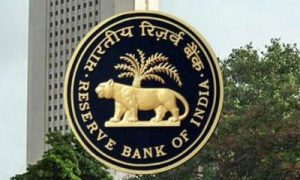It can be as simple as saving up for old age, buying health insurance for your parents or giving yourself, your spouse or children quality education.
As it has been amply established that the New-Wage rules set to come into effect on April 1, 2021, will make your take-home paycheque even lighter, saving tax becomes all the more important. However, tax planning does not need to be hectic. It can be as simple as saving up for old age, buying health insurance for your parents or giving yourself, your spouse or children quality education.
The government gives incentives to citizens to save in form of tax exemptions. These savings can be for retirement, paying medical bills, buying a house among other measures. Here are five such steps for risk-averse tax-payers for saving tax:
National Pension Scheme
The National Pension System (NPS) is a pension cum investment scheme launched by the government to provide old age security to the citizens. It brings an attractive long term saving avenue to effectively plan your retirement through safe and regulated market-based return.
Under Section 80CCD(1B), a taxpayer can claim deduction up to Rs 50,000 on the amount deposited under the scheme. It is to be noted that the deduction is over and above deduction under Section 80CCD(1) but the same cannot be claimed under both sections.
Buy health insurance
In case no one in the family is above 60, tax deduction up to Rs 25,000 can be claimed on medical insurance premium paid for cover under Section 80D. This includes any health insurance such as mediclaim, family floater, or critical illness plan for spouse, children and self. If the eldest member of the family is above 60 years, this deduction limit is increased to Rs 50,000. However, thi deduction on gross income under Section 80D is Rs 1 lakh if parents and the taxpayer are above 1 lakh. I
t is to be noted that any health check-up upto Rs 5000 can also be claimed for deductions but it needs to be within the overall deduction limit.
Education loan
The interest on education loan taken by the taxpayer to educate oneself, spouse or children is eligible for deduction from the total income under Section 80D. There is no ceiling on interest to be considered for deduction. The deduction, however, is available for interest paid on loan taken for higher studies.
The Income Tax, “higher education means any course of study pursued after passing the Senior Secondary Examination or its equivalent from any school, board or university recognised by the Central Government or State Government or local authority or by any other authority authorised by the Central Government or State Government or local authority to do so.”
Home loan
Under Section 80C, a deduction of up to Rs 1.5 lakh can be claimed on the principal amount part of the monthly instalment paid for a home loan and the interest is deductible up to Rs 2 lakh under Section 24. The tax benefit can be availed if the possession of the house is within 5 years from the date of the loan.
Income from savings, deposits
Interest income earned from deposits can also be claimed for deduction from total gross income under Section 80TTB of the I-T Act. The upper limit for this deduction is Rs 50,000-per-year. For senior citizens, however, the deduction is available only under Section 80TTB and not 80TTA.



































